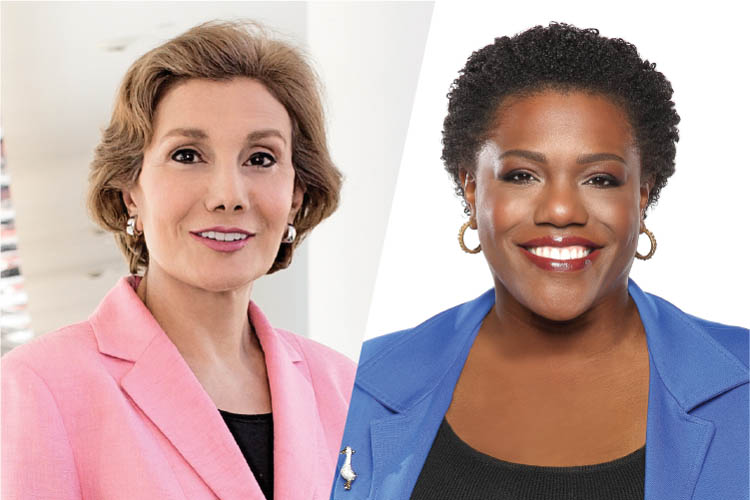On Wednesday, March 8, Teresa White, President Emeritus of Aflac U.S., joined Dean Maryam Alavi of the Scheller College of Business for a virtual conversation about career development and workplace diversity for International Women’s Day. The conversation occurred over Zoom and was open to all Tech students, faculty and prospective Master of Business Administration (MBA) students.
White will retire at the end of the month after a notable career as Aflac’s first female and African American president. In the conversation, White shared her wisdom gained throughout her career and the unique challenges she overcame as a woman of color in corporate America. She stressed how vital “learning how to learn” and receiving constructive feedback are to professional success.
According to Scheller’s event page for the conversation, she has fostered a diverse and inclusive environment at Aflac, as 65% of their 5,700 employees are women and nearly 50% are people of color.
Diversity, equity and inclusion (DEI) in the workplace continues to grow in importance as the corporate demographic becomes more diverse, and employees seek a safe and inclusive work environment. White educated the audience about effective strategies to establish successful DEI initiatives in the workplace and explained the role of diverse leadership in accomplishing them.
“If I have people that only look like me [on a team], we cannot develop great ideas and solutions that meet the needs of a diverse market. There are so many things that separate us. If the goal is inclusion, then I need everyone working on that problem, not just the ones who brought it up. Start off with a council that is representative of various demographics to assess policy from their firsthand experience,” White said.
Her advice reinforces emerging claims that DEI initiatives are integral to the success of a company and will be an important factor for graduating students to consider as they enter the workforce.
According to a study by McKinsey & Company, “companies in the top quartile for racial and ethnic diversity are 35% more likely to have financial returns above their respective national industry medians.”
White also shared the inspiring story of how she, a woman of color, achieved a “seat at the table” within Aflac’s executive suite.
She noted that, although they make up half of all college graduates, women are underrepresented in corporate leadership positions, which required her to overcome multiple obstacles in her ascension to executive president.
She described the first one as a mental obstacle, stating that she had to primarily win the “battle in [her] own mind” and be able to “imagine herself in that C-suite” to begin her journey to success. She encouraged female students to envision themselves in an executive role and use that image to propel themselves upward.
Another obstacle White faced in her early career was a lack of actionable feedback on projects compared to her male counterparts.
Her personal experience is synonymous with a nationwide phenomenon known as “kindness bias” which, according to Harvard Business Review, is an unconscious tendency for evaluators to provide female employees with more positive feedback than male employees. They attribute this to a persisting stereotype that women are “warmer” than men, and evaluators hesitate to give women negative feedback as a result. White instructs emerging female leaders to look past this and push for a productive discourse.
“Don’t stop at ‘good job,’” she said, “instead ask ‘what is it that I did well and that I can repeat?’”
Later in her career, she faced another common roadblock for women in upper management. Her superiors assigned more difficult projects to male coworkers because they assumed that White having a child would affect her capability to work.
She overcame this by advocating for herself and her abilities to her boss and politely asking to be “put on the rotation” for the more demanding projects.
Daniella Martynov, first-year BA, attended the webinar and felt particularly inspired by White’s advice.
“As a female business major, [White’s] words of encouragement about self-advocacy really hit home. In previous jobs I’ve worked, I feel that my male coworkers bonded in an exclusive way and respected each other more than they respected me,” Martynov said.
“I felt that my input on specific issues was not valued as much despite me having more knowledge than my male counterparts. Teresa White’s story has inspired me to be more confident in my skills and assert my value more in a professional setting,” she said.
She continued, “I did not realize until this conversation that when I imagine an executive suite, I only pictured white males. I hope that DEI initiatives will aid in changing this culture for younger generations.”
Conversations like this act as a reminder that despite significant progress in recent years, women, especially women of color, still undoubtedly face unequal treatment in the workplace. Tech strives to advance gender equality and foster an inclusive environment for all its community members.
For more resources on female success at Tech, refer to womenscenter.gatech.edu.
